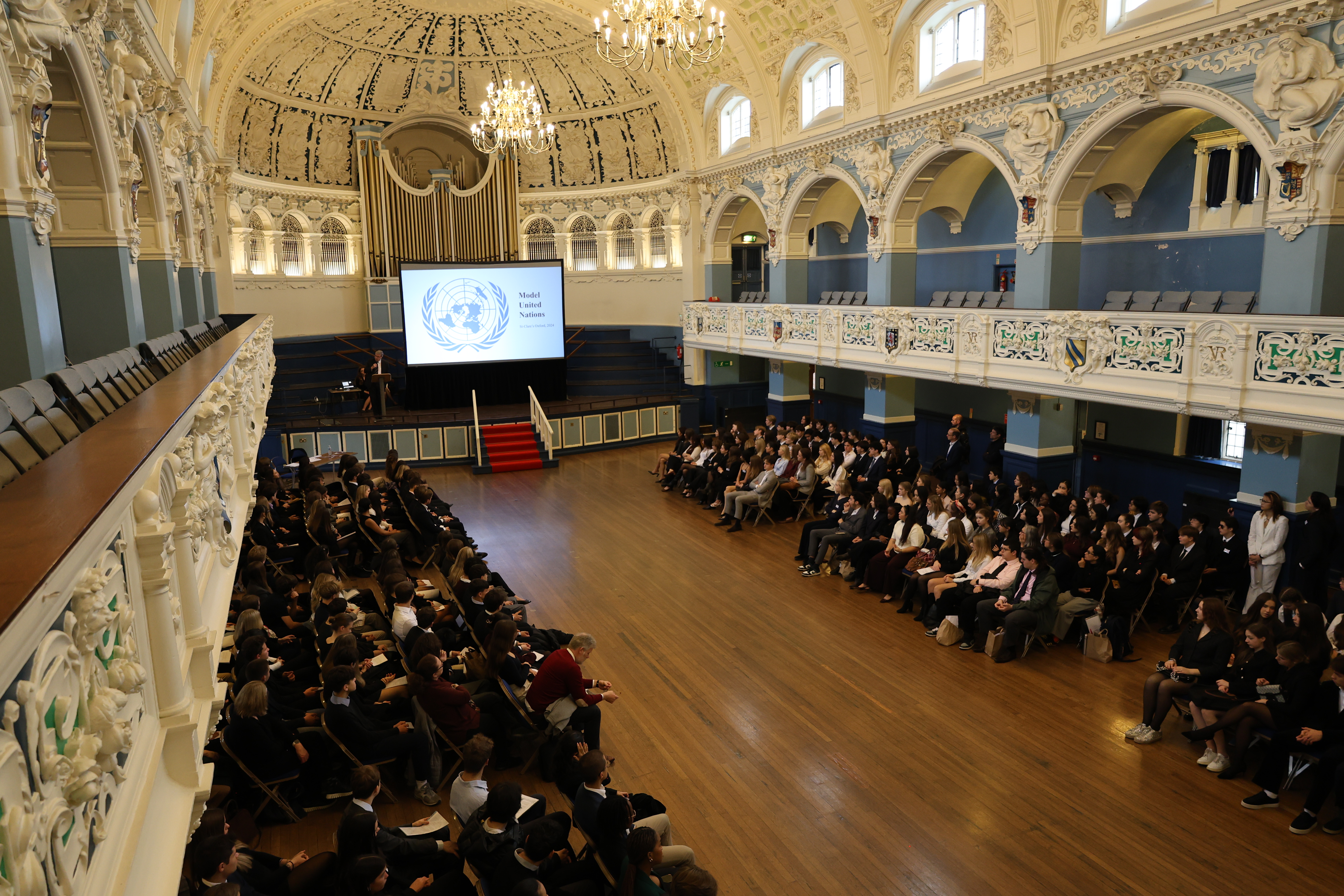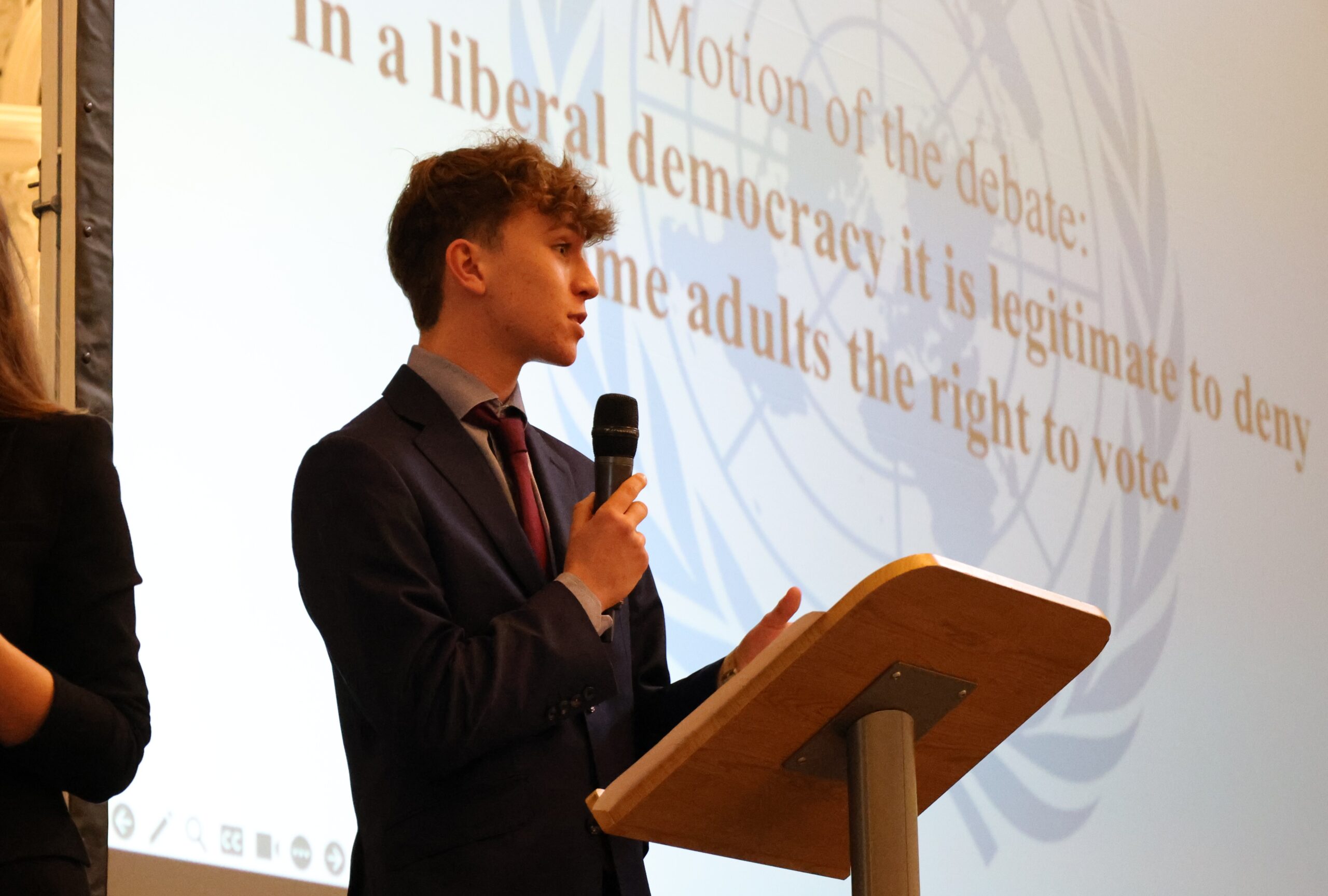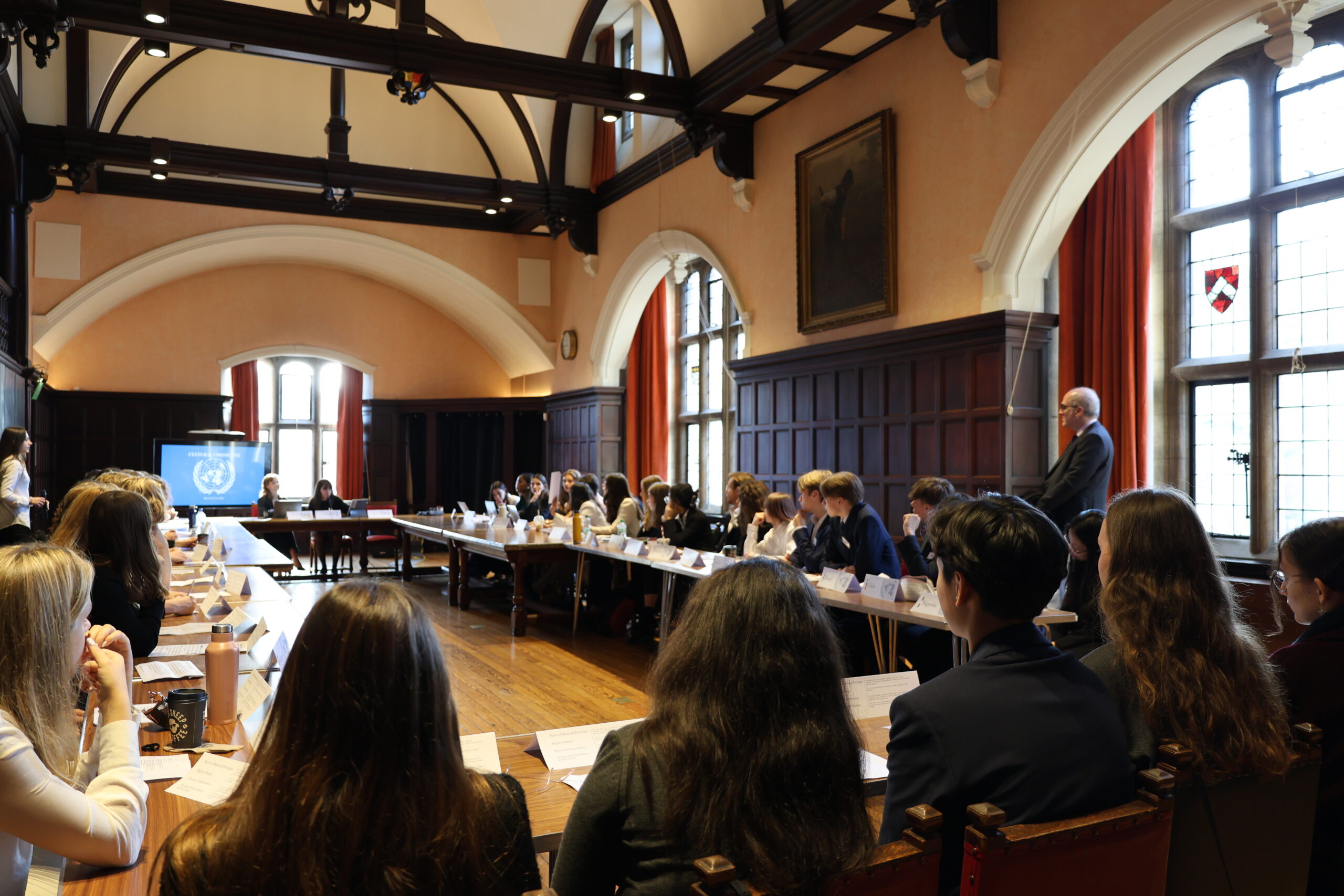What is MUN?
Model United Nations (MUN) is an educational simulation of the United Nations that allows students to step into the shoes of diplomats and engage in international diplomacy. Students get to debate in committees to tackle and resolve global issues, exchanging ideas and practicing using inquiry and analysis skills to vote. It is a valuable experience that can help students develop their critical thinking, research, public speaking, and negotiation skills. Everyone in the school must participate: PRE IBs, IB first year, and IB second year students.

This year was my third MUN conference, so I would say personally I am already experienced in the subject, which is why I was aware of the key concepts and preparation steps. However, I recommend to anyone who is new to MUN to read this guide and review the following…
Why is MUN Important?
MUN is important for several reasons:
- Develops critical thinking skills: Students must analyse complex global issues, research different perspectives and form their own opinions.
- Enhances research skills: Students must conduct thorough research of the issues they are debating in order to understand the history, background and status of the situation.
- Improves public speaking skills: Students must present their arguments and ideas clearly and persuasively in front of an audience.
- Fosters negotiation skills: Students must work with others to find common ground and reach consensus on resolutions.
- Promotes global awareness: MUN exposes students to different cultures, perspectives, and global challenges.
The fundamental objectives of the event are:
- Delegation: Students represent a specific country or organisation and must advocate for its interests.
- Resolution: A formal document that outlines a proposed solution to a global issue.
- General Assembly: The main body of MUN where resolutions are debated and voted on.
- Security Council: A smaller body that deals with issues of international peace and security.

How to Prepare for a MUN Conference:
In order to know what to do once you are there on the day, make sure to prepare the following beforehand:
- Choose a country or organisation: Research different countries and organisations to find one that aligns with your interests.
- Study the topic: Read background materials, news articles and UN resolutions related to the topic you will be debating.
- Develop a position paper: Outline your country’s or organisation’s position on the topic and propose a resolution.
- Practice public speaking: Rehearse your speeches and presentations to improve your delivery and confidence.
- Network with other delegates: Attend social events and meet delegates from other countries to build relationships and exchange ideas.
- Dress formally: MUN is a formal event which practices classical formal clothing style. Students should wear office suits or appropriate dresses, blazers, ties and shoes. You should also bring formal shoes with you to change into once you arrive.
What Happens During a MUN Conference:
If you have never attended a MUN event before, you might be wondering what is happening on the day and what do students actually do. Here is this year’s MUN conference schedule which took place on Tuesday, 12th November at Oxford Town Hall:
- 09:30 – 10:15 – Opening ceremony: The conference begins with an opening ceremony where delegates are welcomed, and the agenda is presented.
It takes place in the main Town Hall. - 10:15 – 12:10 – Then, students split into Committee Groups and debate resolutions and negotiate with other delegates. Clauses are discussed in smaller groups depending on your country’s position and then signed resolutions are presented to the General Assembly for voting.
- 12:10 – 13:15 – Lunch Break
- 13:15 – 14:30 – Return to committees
- 14:30 – 15:30 – In Town Hall, the conference concludes with a closing ceremony where awards are presented, and delegates reflect on their experiences.
Use in University Applications:
MUN can be a valuable addition to university applications. It’s academically helpful since it requires strong research, critical thinking, and writing skills. Participants develop leadership potential since they often take on leadership roles within their delegations. Also, delegates are exposed to different cultures and global issues, raising awareness on the topics. The event requires students to communicate effectively in both written and oral form, exercising their communication skills.
In conclusion, MUN is an interactive communication-skill based event for students, which gives them an opportunity to brainstorm and develop resolutions to real international problems within countries.


Written by Maryia – Pre-IB 25 student
